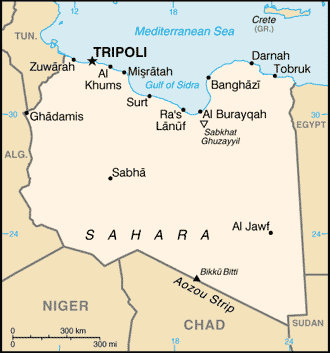The Senate Foreign Relations Committee says it will probe the role BP played in freeing convicted Lockerbie bomber Abdelbaset al-Megrahi. Megrahi, the only person who has been convicted of the Pan Am Flight 103 bombing that killed 270 people in 1988, was released last August from a Scottish prison. It has since come to light that BP may have lobbied for his release in order to secure a $900 million deal to drill in the Gulf of Sidra.
BP has admitted that it lobbied the British government in late 2007 on a prisoner transfer agreement. “BP told the UK government that we were concerned about the slow progress that was being made in concluding a Prisoner Transfer Agreement with Libya,” the company said in a statement yesterday. “We were aware that this could have a negative impact on UK commercial interests, including the ratification by the Libyan government of BP’s exploration agreement.” The oil giant says it was not involved in discussions about Megrahi specifically, however.
Senate Foreign Relations Chairman John Kerry (D-Mass.) announced late yesterday that the panel will hold a hearing on the issue on July 29. “I opposed Megrahi’s release on medical grounds last year as a travesty and the details that have emerged in recent days in the press have raised new concerns,” said Kerry in a statement. “On behalf of those victims and their families, we must get to the bottom of what led to the mistaken release of the only person ever convicted for that terrible crime.” New Jersey Democrat Robert Menendez will chair the hearing.
Megrahi was sentenced to life in prison in 2001, but was released last August after a Scottish court granted him freedom on compassionate grounds. Doctors told the court that he was facing terminal prostate cancer and only had three months to live; now one of those doctors says he was paid by the Libyan government to make that determination, and he could live another ten years as a free man.
Britain’s ambassador to Washington, Nigel Sheinwald, called the decision to release al-Megrahi “a mistake” in a statement yesterday. But he added: “Claims in the press that Megrahi was released because of an oil deal involving BP, and that the medical evidence used by the Scottish Executive supporting his release was paid for by the Libyan government, are not true.”
Sheinwald emphasized that the new British administration disagreed with the Lockerbie bomber’s release, but there is no process in place for returning him to prison. “We have to accept that the release licence does not provide a mechanism for a person who has been released on compassionate grounds to be returned to prison if they have survived for longer than the period diagnosed by the relevant medical authorities,” said Sheinwald.
Four Democratic senators also asked the State Department to conduct its own investigation into the case. Andy Laine, a spokesman for State, said Friday that they are reviewing the letter and will respond to the senators’ request.















